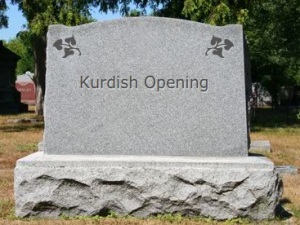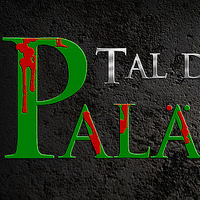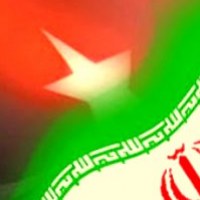![]()
Mon, June 27, 2011 | Turkey Analyst, vol. 4 no. 13 | By Gareth H. Jenkins
Fading Hopes, Rising Demands: Kurdish Problem Moves Closer To the Point of No Return
This article was first published in the Turkey Analyst (www.turkeyanalyst.org), a biweekly publication of the Central Asia-Caucasus Institute & Silk Road Studies Program Joint Center. © Central Asia-Caucasus Institute & Silk Road Studies Program Joint Center, 2010.
In the general election of June 12, 2011, candidates backed by the pro-Kurdish Peace and Democracy Party (BDP) won 36 seats in Turkey’s 550-member unicameral parliament. On June 21, 2011, the Supreme Electoral Board (YSK) stripped Hatip Dicle, one of the successful BDP candidates, of his seat on procedural grounds. On June 23, the BDP announced that it would boycott parliament unless Dicle was reinstated. Over the days that followed, courts in the city of Diyarbakır blocked the release of another five successful BDP candidates. The decisions infuriated the BDP and further antagonized Turkey’s already deeply alienated Kurdish minority. Unless the Turkish government acts quickly, both the BDP’s civil disobedience campaign and the violent insurgency of the Kurdistan Workers’ Party (PKK) appear likely to escalate; with potentially devastating repercussions for Turkey’s social and political stability.
Background
The victor in the general election of June 12, 2011, was never in doubt. Opinion polls consistently showed the ruling Justice and Development Party (AKP) running at 45-50 percent of the popular vote. The only question was whether the AKP would win the 330 seats necessary to be able to push the draft of a new constitution through parliament and submit it to a referendum. Prime Minister Tayyip Erdoğan had already made it clear that he wanted the new constitution to include a transition from a parliamentary to a presidential system; after which he was expected to attempt to have himself elected for two five-year terms.
Turkey’s exceptionally high election threshold of 10 percent had meant that the BDP and a handful of minor leftist parties had formed an alliance, called the Labor, Democracy and Freedom Bloc, and fielded candidates as independents. The expectation was that the bloc would take around 28-30 seats, up from the 20 seats won by Kurdish nationalists at the last election in July 2007. As anticipated, the AKP won the election, winning 49.9 percent of the popular vote. But it took only 326 seats in parliament. The pro-Kurdish candidates performed much better than expected, dominating the predominantly Kurdish southeast of the country and winning 36 seats.
One of the successful candidates in Diyarbakır was the BDP’s Hatip Dicle. On June 21, 2011, the Supreme electoral board announced that it had stripped Dicle of his seat. The board subsequently awarded the seat to an AKP candidate, Oya Eronat, thus taking the party’s total number of seats to 327. Under Turkish law, those convicted of criminal offences and sentenced to more than one year in jail are barred from entering parliament. The YSK justified its decision on the grounds that Dicle had been sentenced to one year and eight months in jail for alleged pro-PKK propaganda. But Dicle’s prison sentence had been announced on March 22, 2011. The YSK attempted to explain the delay in annulling Dicle’s seat by maintaining that it had not been officially notified of his conviction until June 9, 2011. However, this does not explain why the YSK did not announce its decision immediately in order to allow the 77,700 people who subsequently voted for Dicle to support a candidate who was eligible to enter parliament.
The BDP has accused the AKP of engineering Dicle’s dismissal by applying pressure to the YSK. Nevertheless, initially there were hopes that the AKP might be prepared to find a formula which would allow Dicle to enter parliament; such as by changing the qualifications for candidates and persuading Eronat to resign so that a by-election could be held. However, on June 23, 2011, Bekir Bozdağ, the deputy head of the AKP parliamentary party, issued a statement not only denying that the AKP had influenced the YSK’s decision but insisting that all legal avenues were now closed and that the BDP would have to accept the YSK’s decision
Another five of the pro-Kurdish bloc’s successful candidates — all members of the BDP — are currently being held on remand in jail on charges of belonging to a pro-PKK umbrella organization called the Democratic Confederation of Kurdistan (KCK). The organization is real. But the KCK investigation has been deeply flawed from the outset, plagued both by numerous breaches of due process and suspicions that it is being used by the Turkish authorities as a catchall to pressure and imprison Kurdish nationalists, regardless of whether or not they are sympathetic to the PKK. In response, in early 2011, the BDP launched a campaign of civil disobedience in southeast Turkey, including mass protests in town squares and even a boycott of the state-run mosques.
On June 25-26, 2011, the courts in Diyarbakır rejected applications by the five to be released, making it physically impossible for them to attend parliament even if the BDP lifted its veto. Privately, BDP officials insist that, unless all 36 successful candidates are allowed to enter parliament, none of them will.
Implications
In June 2009, the AKP launched what it termed a “Democratic Opening”, which was presented as a process of engagement and consultation which would eventually culminate in a number of concessions to Kurdish cultural and political rights. The process was poorly thought-out and incompetently implemented. It was effectively abandoned in late October 2009; after which the AKP began to pursue a more confrontational policy towards Kurdish nationalist demands. (See the Turkey Analyst’s October 26, 2009 and May 10, 2010 issues)
Nevertheless, the Democratic Opening remains the only official attempt by any modern Turkish government to engage with the country’s Kurds. Although its abrupt abandonment reinforced suspicions about the AKP’s sincerity, many Kurdish nationalists hoped that the strong performance of the BDP-supported candidates in the June 12, 2011, general election would persuade the AKP to re-engage; particularly as parliamentary support from the pro-Kurdish deputies could enable the AKP to draft a new constitution and put it to a referendum without having to consult with the other opposition parties. But any hope that the AKP would be prepared to re-engage have seemingly now all but disappeared.
Nor does the AKP appear to understand that time is beginning to run out. The AKP has been more willing than any of its predecessors to make concessions to Kurdish demands, such as by easing some restrictions on the use of the Kurdish language in 2003-2004. But the AKP has continued to reject calls for the lifting of all restrictions on the use of Kurdish and, for example, allowing the language to be used as the medium of instruction in schools in southeast Turkey.
However, Kurdish demands have not remained static. Indeed, far from locking Kurdish demands at what the AKP regards as an acceptable level, the government’s refusal to grant more concessions appears merely to have fuelled a determination to push for more; to the point where many Kurds now believe that the only way that they can ever guarantee full cultural and linguistic rights is through some form of self-government. Both the BDP and the PKK are now calling for devolution and the creation of what they term “democratic autonomy” for Kurdish areas. More ominously for the Turkish state, younger generations of Kurds are both more hard-line and more alienated than their parents. Many now advocate full independence, and appear increasingly willing to resort to extreme measures — including violence — in order to achieve it.
Yet, even if had the political will, it is difficult to see how the AKP could meet Kurdish nationalist demands without facing a Turkish nationalist backlash. In recent years, there has been a marked increase in ethnic polarization, including a growing number of violent clashes, particularly attacks by Turks on Kurds who have migrated to the west of the country. Indeed, one of the main reasons for the AKP abandoning its Democratic Opening was that it triggered a series of such attacks in western Turkey. (See the Turkey Analyst’s April 26, 2010 issue)
Studies suggest that ethnic antagonism is on the rise in both communities, but is particularly pronounced amongst Turks. In early June 2011, the Konda research company published the results of a survey which found that 57.6 percent of ethnic Turks would not marry a Kurd, while 47.4 percent did not want a Kurd as a neighbor. In comparison, 26.4 percent of Kurds would not marry a Turk, while 22.1 percent did not want a Turk as a neighbor.
More pertinently for the AKP as it seeks to draft a new constitution, Turks and Kurds were also divided on its possible contents. A total of 71.7 percent of Turks were opposed to any mention of Kurdish in the new constitution and 59.2 percent were opposed to education in Kurdish. In contrast, 73.7 percent of Kurds maintained that a reference to Kurdish identity should be included in the new constitution, while 87.2 percent wanted education in Kurdish and 70.9 percent supported political devolution.
Conclusions
Even before the June 12, 2001 general election, there were already signs that — regardless of whether or not the government had the political will — Kurdish nationalist demands had outstripped the AKP’s ability to meet them. The impasse over Hatip Dicle and the other five successful BDP-backed candidates is likely to drive the two sides even farther apart; and has dealt a severe blow to hopes that the main focus of the Kurdish nationalist struggle could be relocated from the streets and mountains of southeast Turkey to the negotiating table in Ankara.
Even if the AKP eventually reengages with the BDP, it is difficult to see how sufficient trust can be generated for the two sides to engage in substantive negotiations. Yet such is the level of anger and resentment in southeast Turkey that, if there are no substantive negotiations, an escalation in both the BDP’s campaign of civil disobedience and the PKK’s violent insurgency appear inevitable. In the short-term, neither would be likely to force major concessions from the Turkish government. But they would fuel already dangerously high social tensions and increase the risk of widespread ethnic violence.
Even if it is not achievable in the short-term, there is little doubt that the decisions of the YSK and the courts in Diyarbakır will have increased the number of Kurds who believe that the only long-term solution lies in the decoupling of southeast Turkey from the rest of the country. Indeed, since the beginning of 2011 there has been a growing sense that the Kurdish issue is nearing the point where the momentum towards autonomy — or even full independence — becomes irreversible; and the only questions are when and how it occurs. Although the Kurdish issue has not yet reached the point of no return, the attempt to prevent six elected pro-Kurdish politicians from taking their seats in parliament has given it another push in that direction; and thus further reduced the time available to find a solution before it is too late. However, there is currently no sign that the AKP is aware of the extent or the urgency of the danger.
About the author,
Gareth Jenkins, a Senior Associate Fellow with the CACI & SRSP Joint Center, is an Istanbul-based writer and specialist of Turkish Affairs.



 RSS
RSS














Fading Hopes, Rising Demands: Kurdish Problem Moves Closer To the Point of No Return | #Turkey #Kurds #PKK #BDP #AKP http://bit.ly/mH2jUY
Fading Hopes, Rising Demands: Kurdish Problem Moves Closer To the Point of No Return | #Turkey #Kurds #PKK #BDP #AKP http://bit.ly/mH2jUY
Fading Hopes, Rising Demands: Kurdish Problem Moves Closer To the Point of No Return | #Turkey #Kurds #PKK #BDP #AKP http://bit.ly/mH2jUY